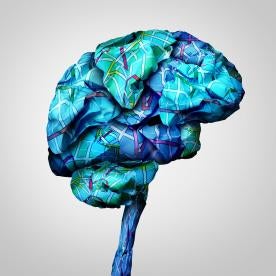The Importance of Obtaining Treatment
Being involved in a serious accident will take its toll on any accident victim. When most people think about the injuries, images of broken bones, back injuries, and whiplash come to mind. With the right medical treatment, accident victims can often overcome many of these injuries.
However, other, more insidious injuries commonly result from car accidents, slip and falls, and other accidents: brain injuries.
Those who suffer brain damage in an accident can suffer a wide range of severe symptoms, including depression and anxiety.
Mental Health Conditions Stemming from Head Trauma
Depression and anxiety are serious mental health conditions that can drastically affect someone’s life. Often, these conditions arise throughout the natural course of someone’s life. However, both depression and anxiety can also be caused by head trauma.
Depression is characterized by a feeling of sadness, loss, or despair that interferes with someone’s life and does not improve over time. The symptoms of depression vary, depending on the person, but will often include:
-
A sudden difficulty concentrating
-
Changes in appetite
-
Changes in sleep habits
-
Feeling down, sad, or hopeless
-
Feeling of restlessness
-
Feelings of worthlessness or guilt
-
General fatigue, or an overall lack of energy
-
Loss of interest in activities you used to enjoy
-
Thoughts of death or suicide
-
Withdrawing from friends and family
On the other hand, anxiety is characterized by feelings of fear or nervousness that are not in proportion to the scenario at hand. Anxiety can be generalized or acute. Those experiencing generalized anxiety will almost always exhibit at least mild symptoms. Acute anxiety often manifests itself in the form of panic attacks.
Often, brain injury survivors who never exhibited the symptoms of depression or anxiety before will not understand where these symptoms came from. However, it is vital that accident victims suffering from depression or anxiety seek treatment. Evidence-based treatments exist that can improve the symptoms of these debilitating disorders. To learn more about common symptoms after a brain injury accident speaking with an experienced injury attorney or medical professional can help guide you to the right treatment for you.
Treatment for Brain Injury-Induced Depression and Anxiety
Mental health disorders, such as depression and anxiety, can seriously interfere with your life. However, over the past several decades, medical professionals have made significant advancements in treating these conditions.
Those who suffer from depression or anxiety can take a few steps on their own to help their symptoms. For example:
-
Reducing environmental stresses or “triggers”
-
Exercising more often
-
Enlisting the assistance of loved ones to help during particularly difficult times
-
Adding structured activities into the daily routine
In addition, more severe forms of depression and anxiety can be treated with prescription medication, psychotherapy, or a combination of both.
The bottom line is that both depression and anxiety are real illnesses that do not just go away on their own. However, there are treatment options for accident victims who are newly suffering from depression and anxiety.
Recovering Compensation for Mental Health Conditions
In the wake of an accident, there is often an uphill road to recovery. There are likely significant medical expenses, which may be challenging to pay if the accident victim has missed work. On top of this, accident victims suffering from the symptoms of depression or anxiety must confront a host of additional issues related to their new diagnoses.
Pennsylvania personal injury law allows accident victims to bring a claim against those responsible for their injuries. If successful, accident victims can recover compensation for the injuries they suffered in the accident – including mental health issues.
Of course, establishing that a diagnosis of depression or anxiety resulted from an accident is not always an easy task. Typically, this will require the testimony of a medical expert who will evaluate the accident victim and their previous medical records to determine the cause of their illnesses. This is an integral part of the recovery process, because accident victims who only receive damages related to their physical injuries are not being fairly compensated.




 i
i


